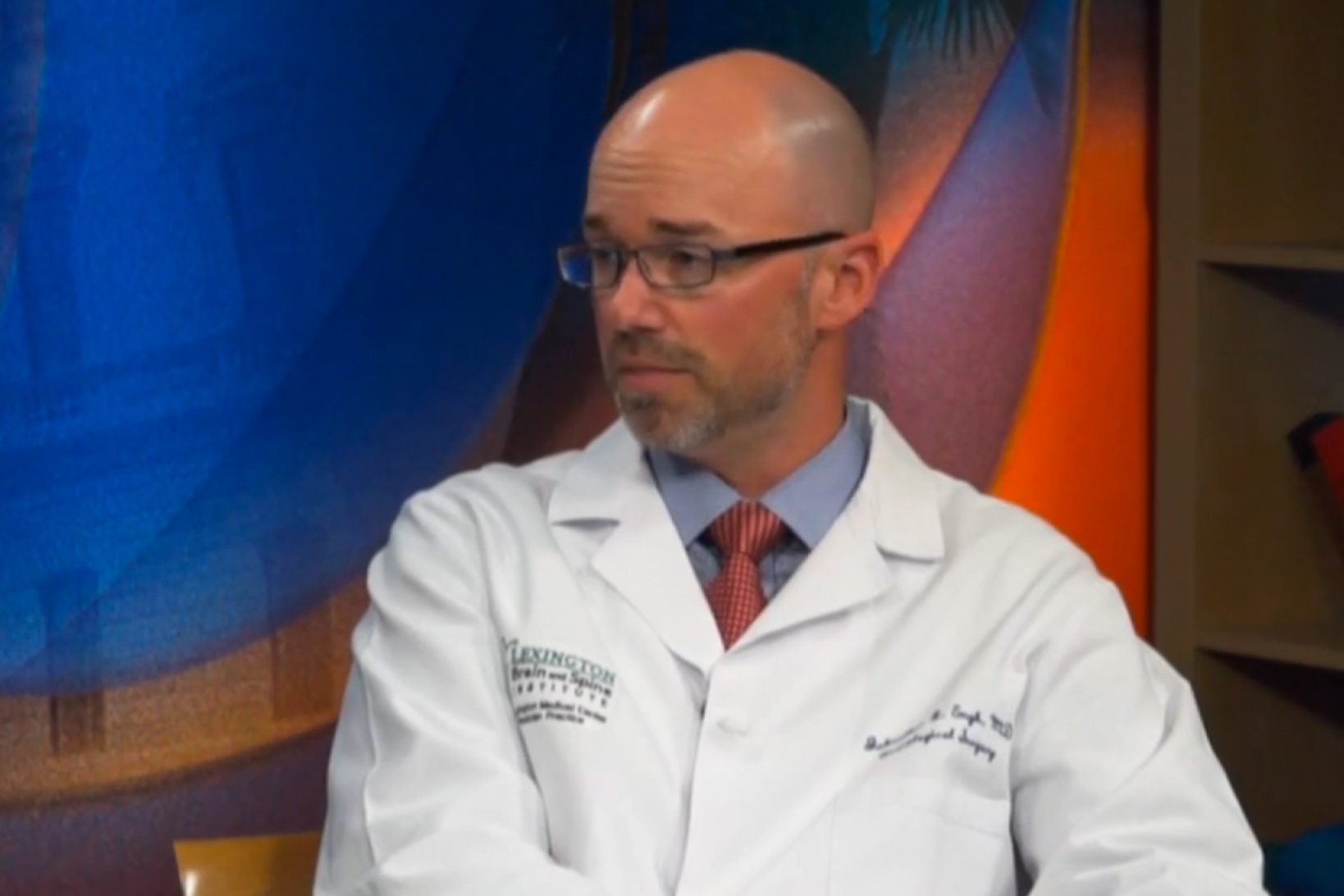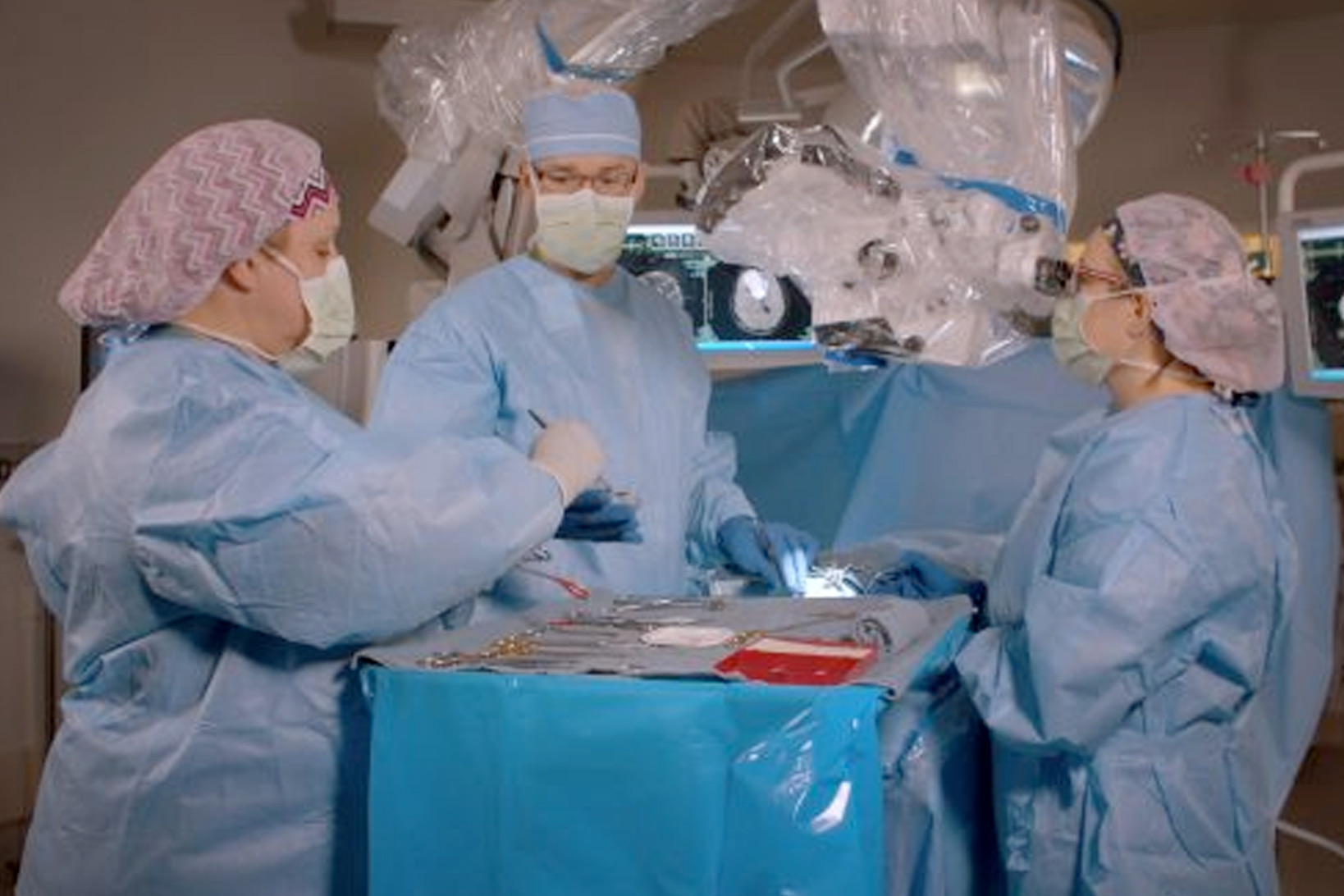Dr. Johnathan Engh is a neurosurgical oncologist at Lexington Brain and Spine Institute, a Lexington Medical Center physician practice. He specializes in tumors of the brain and spine. He talked about the latest treatment measures in this WLTX interview.
There are several types of brain tumors, typically divided between primary and metastatic brain tumors. A primary brain tumor grows from the brain itself; a metastatic brain tumor has spread to the brain from another part of the body. Some are malignant, others are benign. Brain surgeries can be complex.
According to Dr. Engh, brain tumors tend to present with headaches, confusion, an unexplained seizure as well as speech, memory and vision problems. Keep in mind the vast majority of headaches are not brain tumors.
Dr. Engh specializes in the most innovative ways to treat brain tumors. That includes minimally-invasive port surgery, a procedure that allows a surgeon to treat deep-seeded tumors while minimizing trauma to surrounding brain tissue.
Awake craniotomy, another innovative technique, maps the brain and allows the patient to participate in the surgery. If the patient is awake for a portion of the procedure, a doctor can ensure that speech and other neurological function is OK while the surgeon works on the tumor. There's no machine that can do that. Awake brain surgery can maximize a patient's outcome.
Finally, radiosurgery is a precise application of radiation without an incision and given on an outpatient basis. It can be very effective in shrinking tumors and preventing someone from needing surgery.
Dr. Engh's expertise helps to allow people in the Midlands to receive world-class cancer care that's close to home.





